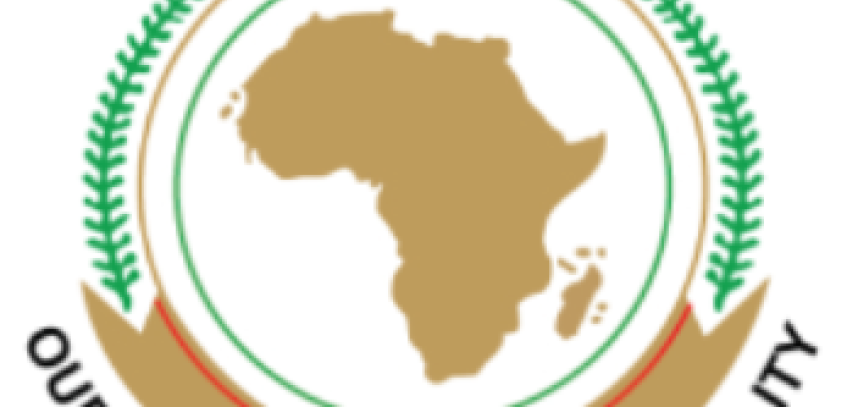“Strengthening our collaboration for an improved protection of refugees and asylum-seekers in Africa”
On the occasion of the World Refugee Day which coincides with the African Refugee Day (A/RES/55/76); the Special Rapporteur on Refugees, Asylum-Seekers, Displaced Persons and Migrants in Africa of the African Commission on Human and Peoples’ Rights, Mrs. Maya Sahli Fadel (Special Rapporteur), recalls the importance of protecting refugees more than ever, especially with the continual increase of their numbers on the African continent.
Indeed, the number of refugees in Africa has almost doubled, increasing from 2.6 million in 2011 to close to 5 million in 2016; and this number keeps on rising as numerous conflicts break out on the continent coupled with the difficulty experienced by host countries in finding long-lasting solutions to the situation of long-term refugees, whose numbers continue to multiply.
In spite of the fundamental principles which constitute the pillars for the protection of refugees as established by the 1951 Geneva Convention and its 1967 Protocol and the Organisation of African Unity Convention of 1967 governing the Specific Aspects of Refugee Problems in Africa (OAU Convention), in particular the principle of non refoulement and non-discrimination ; the protection of refugees and asylum-seekers is beset with many obstacles, including, police crackdowns, unjust or arbitrary detentions, xenophobia, racism and sometimes expulsions.
The Special Rapporteur recalls that the protection and respect for the rights of refugees, which are more than a duty, constitute an obligation for State Parties and also for their citizens. Indeed, to be a refugee is not an option but a fate that can befall any human being at one time or the other in their lives. It is therefore important to ensure that the rights of refugees, especially the rights bordering on human dignity are respected.
In the face of the multiplicity of internal armed conflicts, weather-related disasters and terrorist attacks which contribute to the increase in the number of refugees on the continent, the States have a responsibility more than ever before to abide by the principles and rights guaranteed by the Geneva Convention, its Protocol and by the OAU Convention, in particular at a time when the temptation to undermine it is growing in the face of challenges posed by the protection of refugees.
For some decades now, countries have necessarily become host countries par excellence; either due to their geographical proximity to the countries in conflict situation or due to their reputation as hospitable countries. However, this is not accomplished without consequences, especially in the long term. Thus, the presence of a growing number of long-term refugees on the territory of these countries currently poses a real challenge in the area of protection, treatment and assistance, including the related economic, security and legal concerns.
Indeed, the weaknesses in the area of resources available to the host countries, coupled with unequal distribution of the burden posed by hosting refugees are a persistent concern. One of the major causes of this state of affairs is the non-existence of national policies or rigid or weak policies governing the granting of asylum which depends on the sovereignty of States; and also the lack a common policy at the regional level concerning refugee issues.
The adoption by the African Union in January 2016 of the Common African Position on Humanitarian Effectiveness (CAP), reveals its vision on humanitarian issues in line with the 2063 Agenda; and the adoption of the New York Declaration for Refugees and Migrants by the United Nations in September 2016 are real achievements concerning the protection of refugees and asylum-seekers at the African regional and international levels. However, without effective implementation of these texts, the situation will remain unchanged.
Thus, the Special Rapporteur urges the African Union to implement without any further delay the Common African Position on Humanitarian Effectiveness (CAP) and to fast-track the process of creating an African Humanitarian Agency with a mandate to implement the humanitarian plan of action at the continental level.
The Special Rapporteur also takes this opportunity to request Member States of the African Union to organise national, regional consultations as provided for by the New York Declaration in order to ensure an improved protection of refugees and asylum-seekers.
The Special Rapporteur would also like to encourage African States to intensify their collaborative efforts in the search for long-lasting solutions, in particular for long-term refugees, who can be a positive value addition in the economic dynamics of the host countries.
She calls particularly on African States to contribute collectively to the cost of hosting refugees in accordance with the principle of African solidarity and international cooperation as stipulated in the 1969 OAU Convention governing the Specific Aspects of Refugee Problems in Africa.
Finally, the Special Rapporteur recalls that though the primary responsibility of protection falls on the State, it is the collective responsibility of all people to involve themselves to ensure that respect for human rights becomes effective since it is our common and shared responsibility.
Banjul 20 June, 2017








